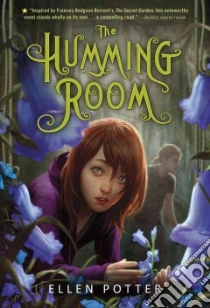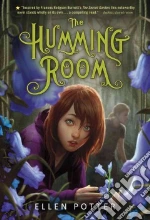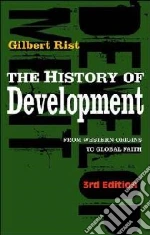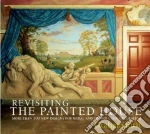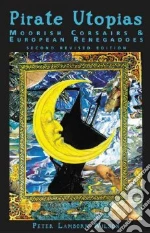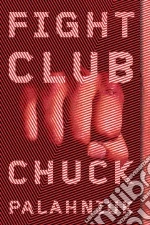The Humming Room - 9781250016669
Un Libro in lingua di Square Fish
Hiding is Roo Fanshaw’s special skill. Living in a frighteningly unstable family, she often needs to disappear at a moment’s notice. When her parents are murdered, it’s her special hiding place under the trailer that saves her life.
As it turns out, Roo, much to her surprise, has a wealthy if eccentric uncle, who has agreed to take her into his home on Cough Rock Island. Once a tuberculosis sanitarium for children of the rich, the strange house is teeming with ghost stories and secrets. Roo doesn’t believe in ghosts or fairy stories, but what are those eerie noises she keeps hearing? And who is that strange wild boy who lives on the river? People are lying to her, and Roo becomes determined to find the truth.
Despite the best efforts of her uncle’s assistants, Roo discovers the house’s hidden room—a garden with a tragic secret.
Inspired by The Secret Garden, this tale full of unusual characters and mysterious secrets is a story that only Ellen Potter could write.
Read the Q&A with Ellen Potter from Publisher’s Weekly on writing a novel inspired by The Secret Garden
By Sally Lodge
Jan 12, 2011
In 2003, Ellen Potter made a lively splash onto the scene with her middle-grade novel Olivia Kidney. She went on to write three sequels about that enchantingly quirky heroine, as well as two other novels, Slob and The Kneebone Boy. Most recently, the author tapped into memories of her own childhood reading to pen The Humming Room, a novel inspired by Frances Hodgson Burnett’s The Secret Garden. Set in a mansion—a former children’s tuberculosis sanitarium—on an island in the St. Lawrence River, the story centers on Roo, a prickly orphan who goes to live with her aloof uncle, and befriends Phillip, his troubled son, and Jack, a local boy. Potter talks about how this novel took shape.
Is it safe to assume that The Secret Garden was an important book to you as a child?
Obviously, I loved the novel as a kid. What really struck me was that when I went back to read it as an adult, the story not only held up, but I discovered elements in it I had never noticed before. It felt very fresh, and surprisingly layered in a way I hadn’t realized as a child.
Was that an unusual reaction for you to have to a book you revisit from your childhood?
Yes, very unusual for me. A lot of times when I go back to books I loved when I was young I don’t quite understand what it was that I loved about them. Rereading The Secret Garden, I felt a lot like Mary feels when she visits her garden. She’s always finding something new popping up—something delightful or surprising. I’ve reread The Secret Garden every year as an adult. I have a battered copy on my bookshelf—it’s really quite a mess! The experience of reading the novel keeps deepening for me.
How did you tackle the actual writing of The Humming Room?
The idea of writing a contemporary version of The Secret Garden was very exciting to me, yet at the same time it was very, very intimidating. I knew I needed to follow the original story line—or that I wanted to—but I knew I had to make it different enough that it would be worthwhile for people to read my novel. My editor, Jean Feiwel, was great and kept encouraging me to have at it, to go anywhere that I felt I had to go with it.
Did you set parameters for yourself, in terms of working within Burnett’s original storyline?
I actually kept trying to swerve away from the original story, but it wasn’t easy. There’s something about The Secret Garden that kept me rooted in the original storyline, which was difficult for me. I don’t plot my novels—I move along with my characters. For the first time I had a story already set out for me, which was very challenging.
Would you say that you heard Burnett’s voice in your head as you wrot
